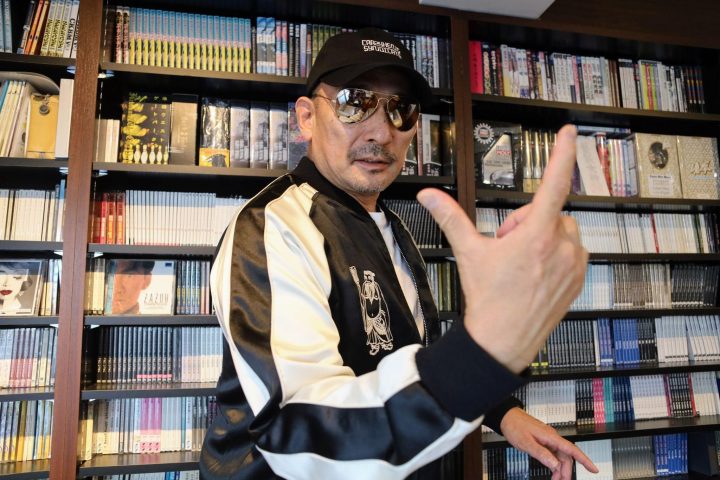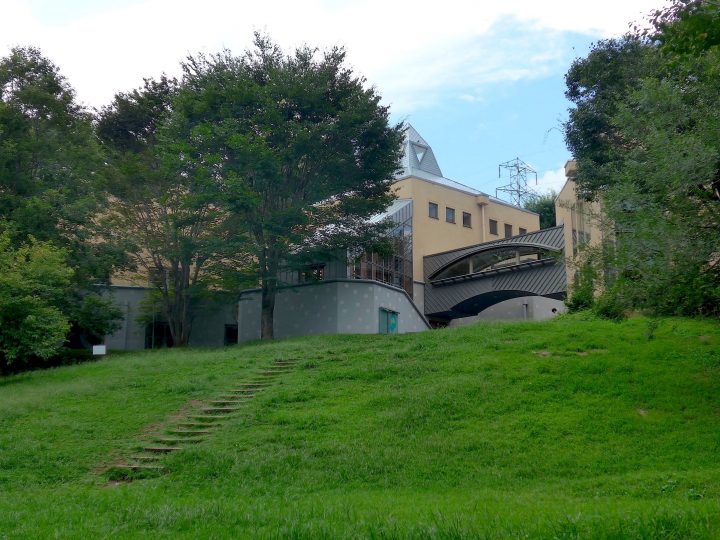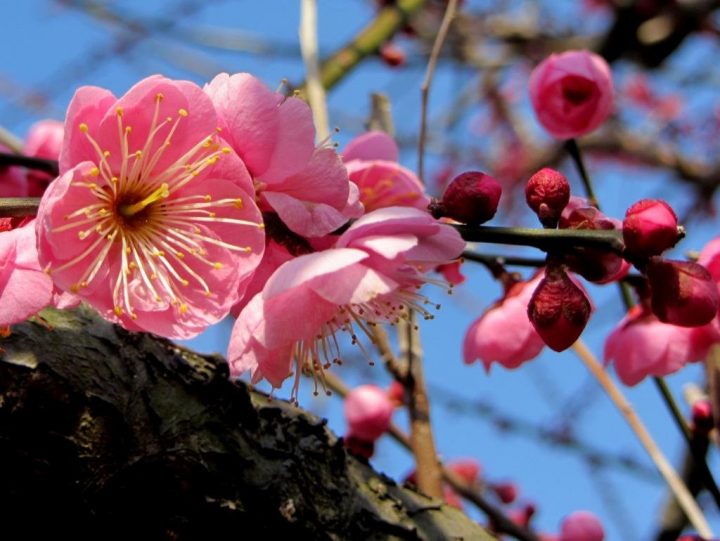Uncovering the truth behind this mysterious opera?! How to enjoy Handel's Scilla to the fullest
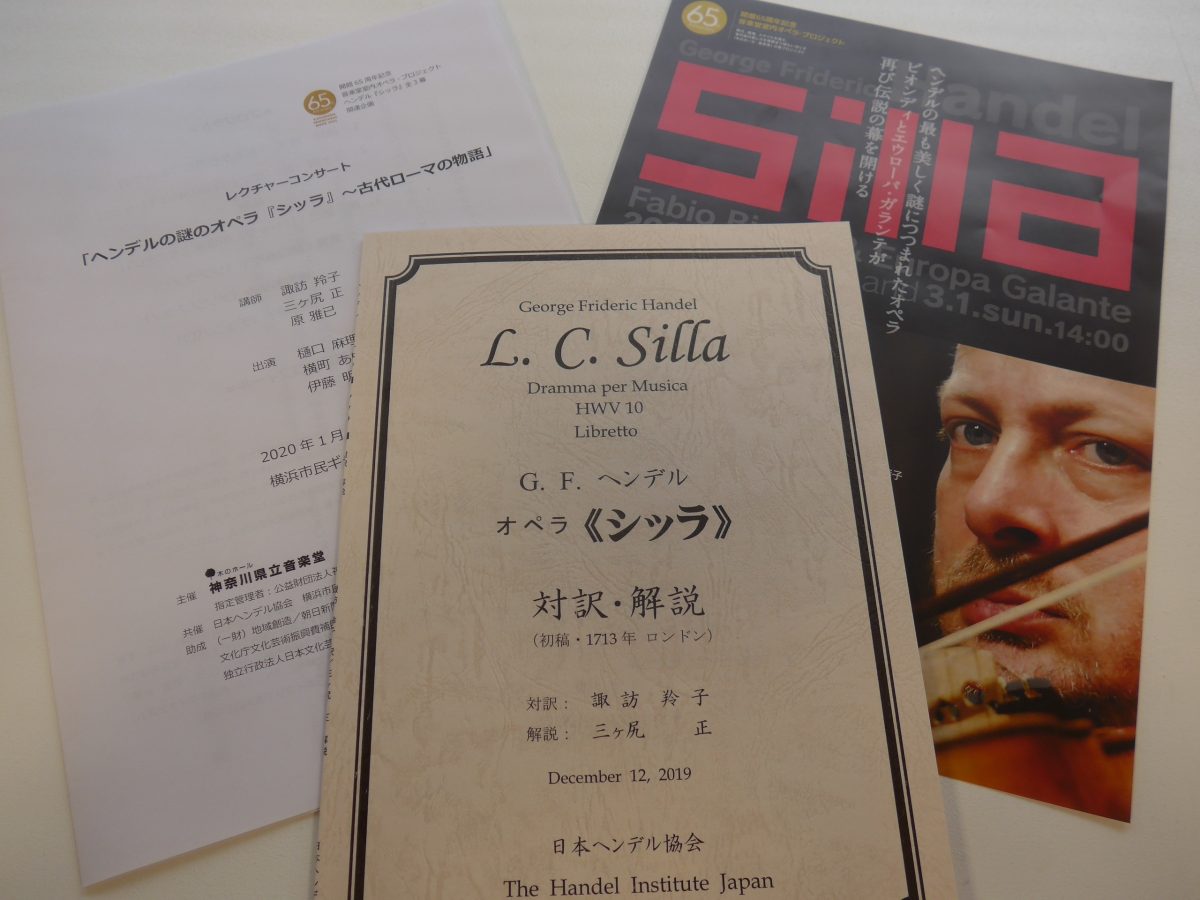
A world of art to visit, see and feel
File.24 Kanagawa Prefectural Music Hall "Scilla"
Miyuki Inoue (Magcal Editorial Department)
Handel's opera Scilla is based on the later life of Lucius Cornelius Sulla, a real-life dictator of ancient Rome. Although the libretto and sheet music remain intact, it is unclear whether it was performed in a theater at the time, and it is said to be a work that is rarely performed in modern Europe. From an amateur's perspective, one might wonder, "Is that because it's poorly made?" (Sorry!).
This mysterious opera will be performed at the Kanagawa Prefectural Music Hall. Prior to the performance, a lecture concert entitled "The Mystery of Handel and the Opera Scilla - A Tale of Ancient Rome" was held. This was a chance to get closer to the world of opera, which I had always felt was inaccessible! With a long-held desire in mind, I went to see it.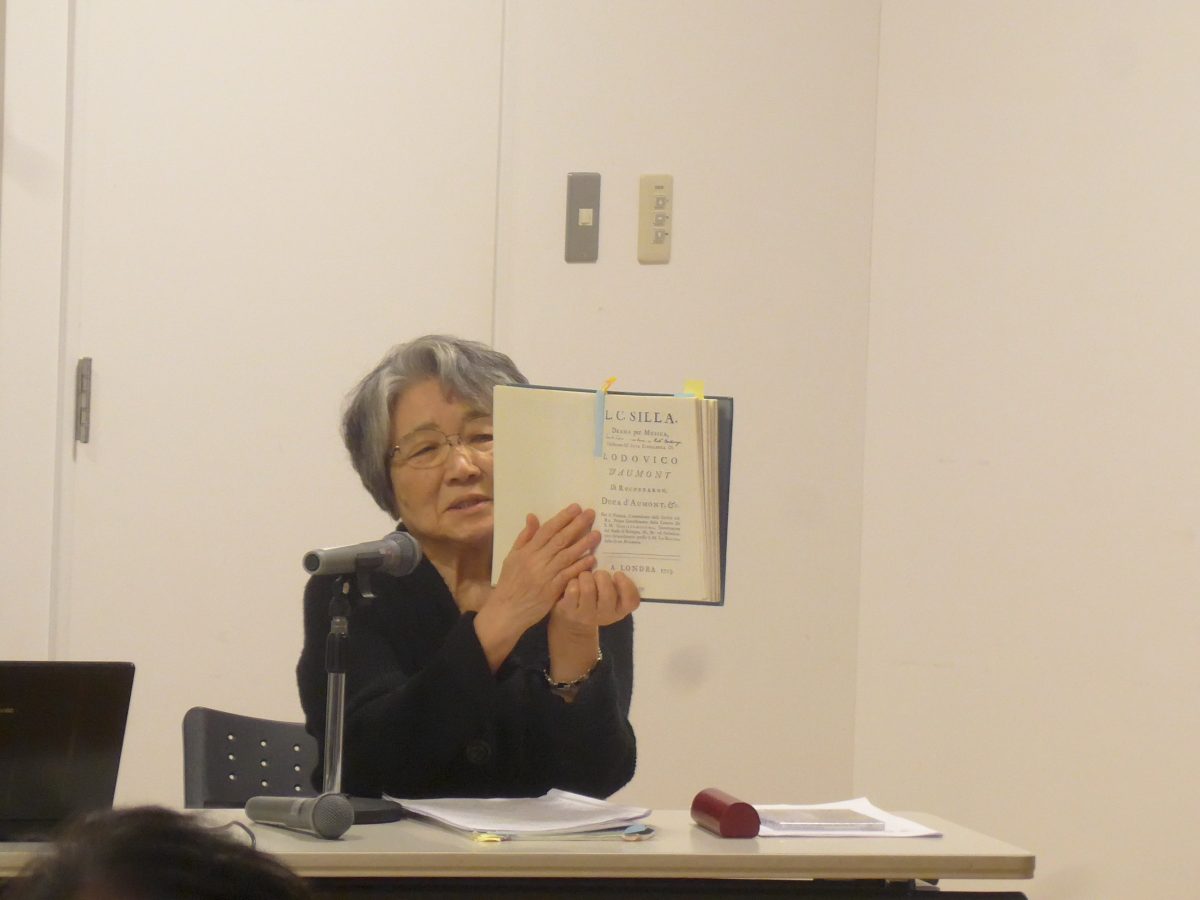
The lecture began with a talk by Ms. Ryoko Suwa, who translates the script for the Handel Society of Japan, entitled "Scilla as seen through the script." First, we listened to an introduction to the plot and characters.
Even so, the main character, Scilla, is a terrible guy. He flirts with his friend's wife and girlfriend, and when they treat him coldly, he demotes both the couple and himself, committing all sorts of power and sexual harassment. However, the theme is apparently also used in Mozart's opera "Lucio Scilla," so perhaps this is a typical "tyrant story."
Although Suwa says that "the plot development is abrupt and ignores theory too much," he is apparently attracted to the structure and unique scenes.
"It lacks emotion in some areas, but the idea of going beyond the bounds of sentimental opera is rather interesting. The characters are rough around the edges but vividly drawn, so I don't think it's the worst script by any means."
I see. I'm starting to think that a story might be more interesting if it has a "bad guy." 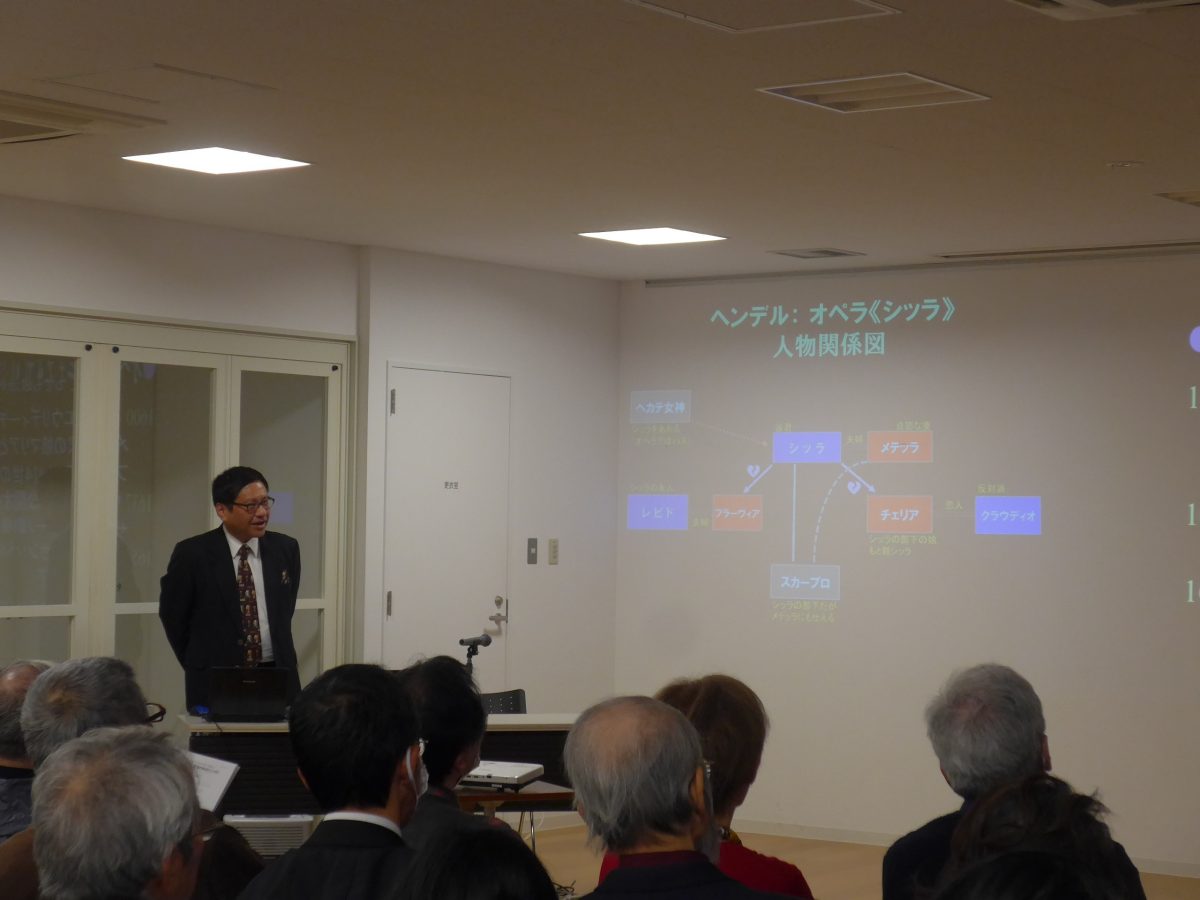
Next up was a talk entitled "Scilla in History and Politics" by Tadashi Mikajiri, a member of the Japan Handel Society and a Handel researcher.
First of all, I was surprised to hear that "in this era, opera was a means of expressing political opinions and demonstrating the legitimacy of royal authority." However, when I compared the period in which "Scilla" was written with the actual chronology, and then matched the characters with real people, it certainly made perfect sense.
The story revolves around the succession to the English throne in the first half of the 18th century and the War of the Spanish Succession. As history unfolds, the world of the opera takes on a more realistic tone. When criticized by rulers for a critical plot, the operativists can simply excuse themselves by saying, "No, no, it's just a historical piece," a concept similar to that of Japanese ukiyo-e and kabuki.
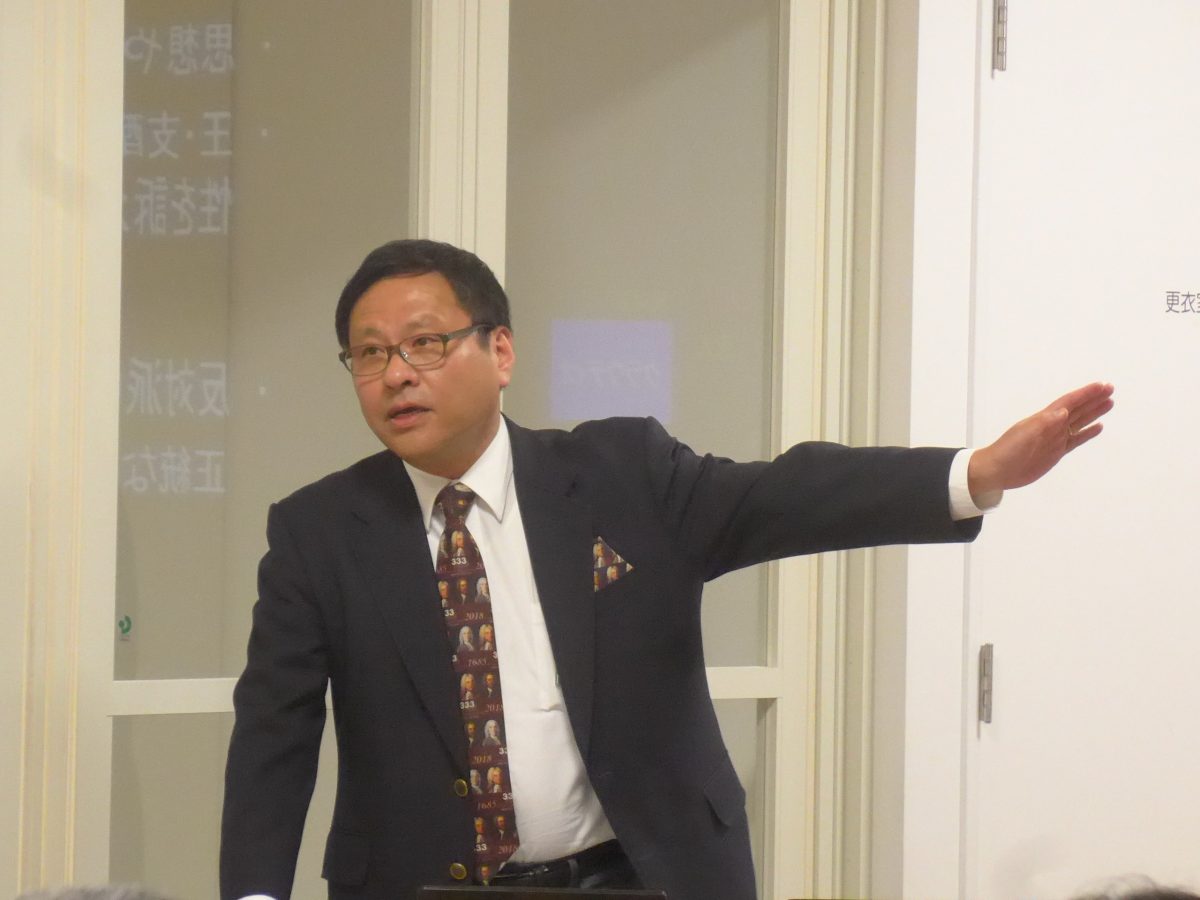
Despite being so meticulously written, there is no record of it ever being performed, and Mikajiri concludes that "it was never performed in public." Why?
This is because in the real world, John Churchill (aka Sylla), the Duke of Marlborough, was overthrown and there was no longer any need to condemn his tyranny. In a sense, the work has become outdated.
It may seem a bit wasteful, but don't worry, much of the music was later reused in the opera "Amadigi." Apparently, this kind of "reusing" was not uncommon at the time.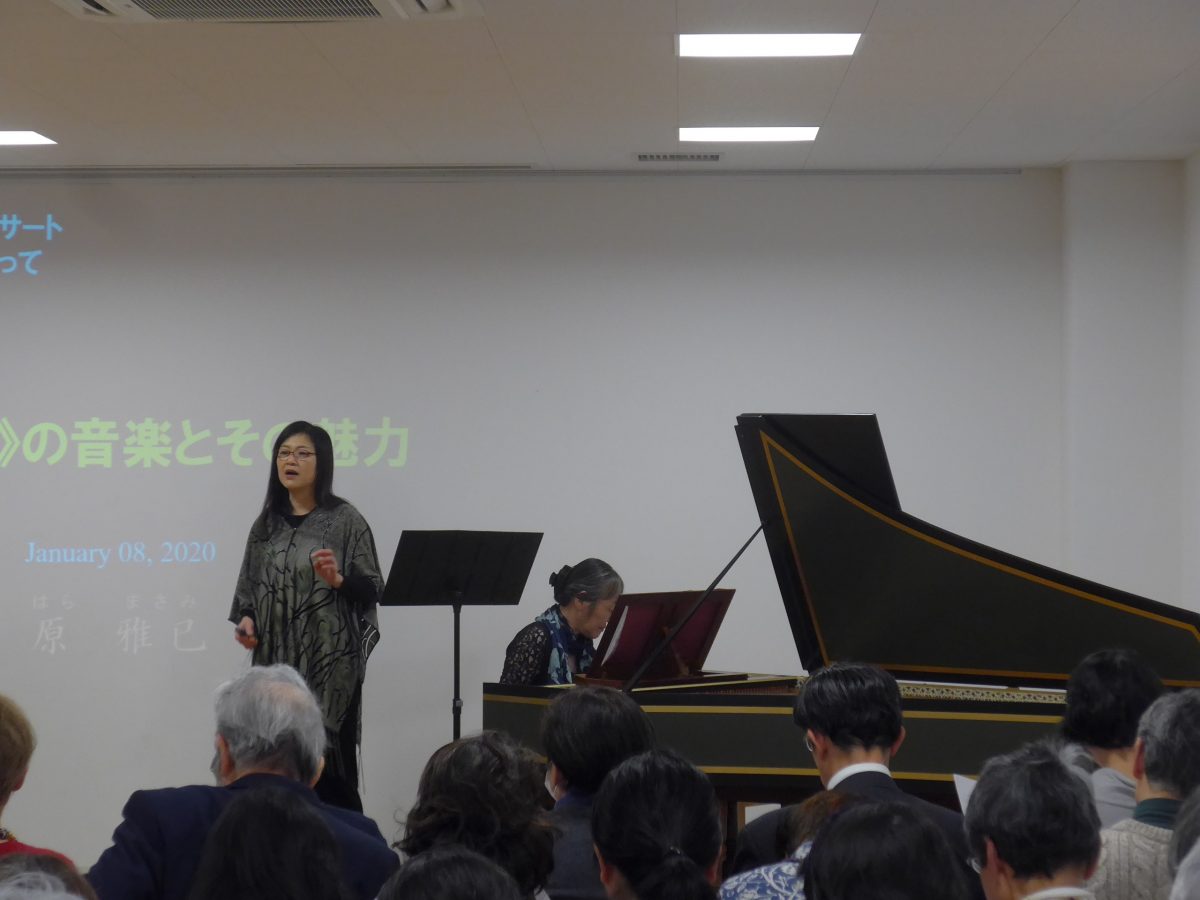
Finally, Masami Hara, Music Director of the Japan Handel Society, gave a lecture on "The Music and Appeal of Silla." Accompanied by a performance by harpsichordist Akiko Ito, the lecture covered the structure of the opera, the composition process, and the effects of sound.
Unfortunately, I didn't understand much about the technical aspects of music, but what was interesting was that the expression of the music changes greatly depending on the tempo of the performance.
Many of the pieces in Scilla's score do not indicate the tempo, which leads Hara to speculate that "it was never performed." So, how do you determine the tempo for an actual performance? There are various ways to do this, such as figuring it out from the libretto or referring to pieces used in other operas, but as this is just speculation, there is no single answer.
As an "experiment," Hara proposed two different tempos with different interpretations, which he performed with Mariko Higuchi (soprano) and Ayumi Yokomachi (mezzo-soprano).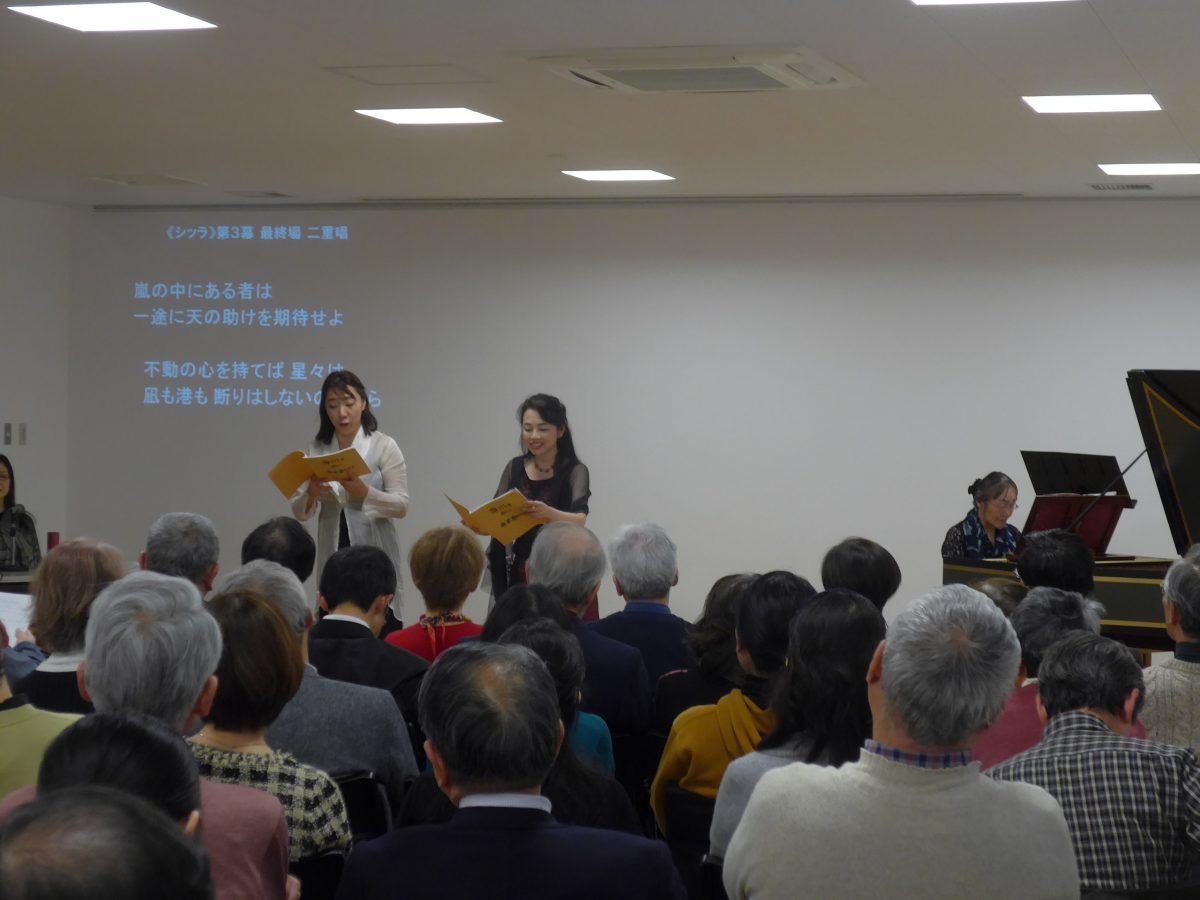
I was surprised when I heard it! It's the same music, but just changing the tempo can change the nuance so much. Music is so deep...
I wonder if Fabio Biondi, the music director and conductor, will decide the tempo for each piece in this performance of Scilla. It's a very interesting process, and I'm a little happy that it will be premiered in Japan.
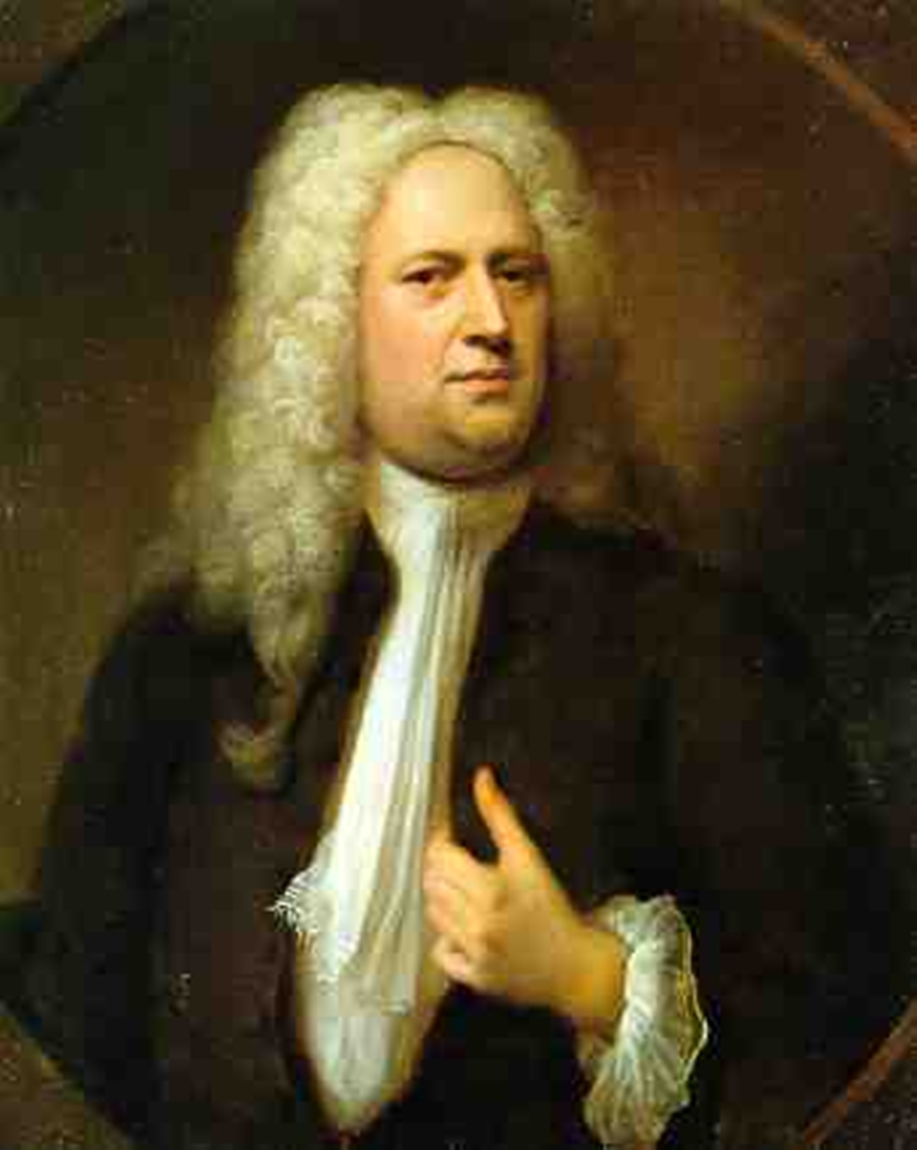
*Handel (1685-1759)
It seems that many of the operas of Handel's time had complex stories that were difficult to understand. In contrast, Scilla is extremely simple and compact. Yet it is filled with beautiful and fascinating music, so even beginners should be able to enjoy it.
Due to various "adult reasons," Scilla was not performed at the time. 300 years later, in 2020, it is definitely something you should experience.
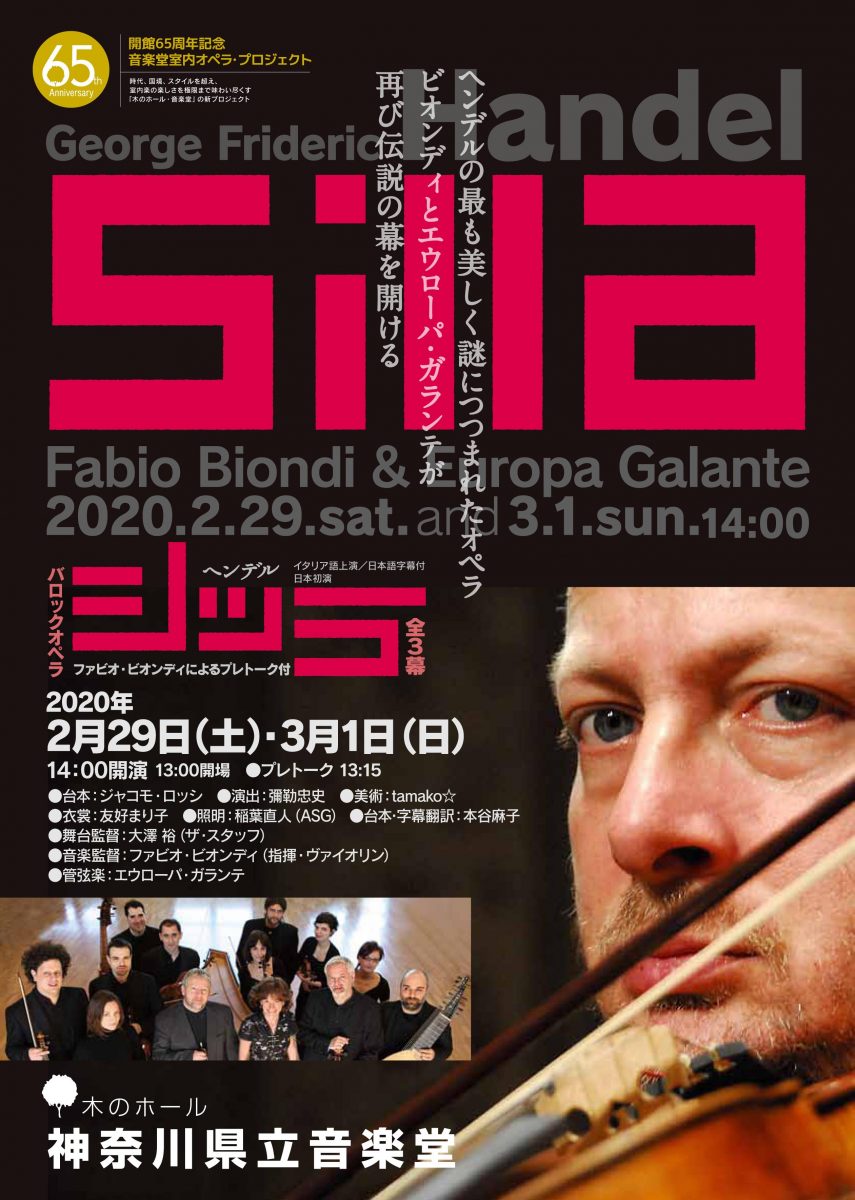
This event has been cancelled.
Handel's "Scilla" in 3 acts
[Performance date] Saturday, February 29, 2020, Sunday, March 1, 2020
[Start time] 14:00 (doors open 13:00) *Pre-show talk from 13:15
[Venue] Kanagawa Prefectural Music Hall
[Music Director] Fabio Biondi (conductor, violin)
[Performance] Europa Galante
[Cast]
Silla: Sonia Prina (contralto)
Claudio: Hilary Summers (contralto)
Metella: Seunghye Lim (soprano)
Lepido: Vivica Junod (mezzo-soprano)
Flavia: Roberta Invernizzi (soprano)
Celia: Maria Hinojosa Montenegro (soprano)
God: Michael Bols (baritone)
[Director] Tadashi Miroku
[Art] tamako☆
[Costume] Tomoyuki Mariko
[Lighting] Naoto Inaba (ASG)
[Script and subtitle translation] Asako Mototani
[Stage Director] Yutaka Osawa (The Staff)
[Price] S seat ¥15,000, A seat ¥12,000 (few seats remaining), B seat (SOLD OUT), Student (under 24 years old) ¥8,000
[Inquiries] Kanagawa Prefectural Music Hall Tel. 045-263-2567
